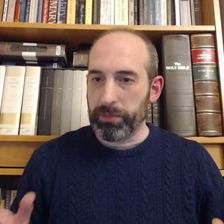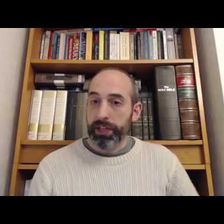The Parable of the Lost Son ... or is it? (with Joe McCulley and Kyle Lammott)

Today I am joined by two Theopolis Junior Fellows, Joe McCulley and Kyle Lammott, to discuss Luke 15:11-32—a parable perhaps best known as the Parable of the Prodigal Son.
Within the episode we also talk about the Junior Fellows program, which is open for applicants for 2020-2021: https://theopolisinstitute.com/junior-fellows-program/junior-fellows-application-active/.
If you have any questions or feedback, please send them to me on Curious Cat: https://curiouscat.me/zugzwanged.
If you have enjoyed my output, please tell your friends. If you are interested in supporting my videos and podcasts and my research more generally, please consider supporting my work on Patreon (https://www.patreon.com/zugzwanged), using my PayPal account (https://bit.ly/2RLaUcB), or by buying books for my research on Amazon (https://www.amazon.co.uk/hz/wishlist/ls/36WVSWCK4X33O?ref_=wl_share).
The audio of all of my videos is available on my Soundcloud account: https://soundcloud.com/alastairadversaria. You can also listen to the audio of these episodes on iTunes: https://itunes.apple.com/gb/podcast/alastairs-adversaria/id1416351035?mt=2.
More From Alastair Roberts






More on OpenTheo















